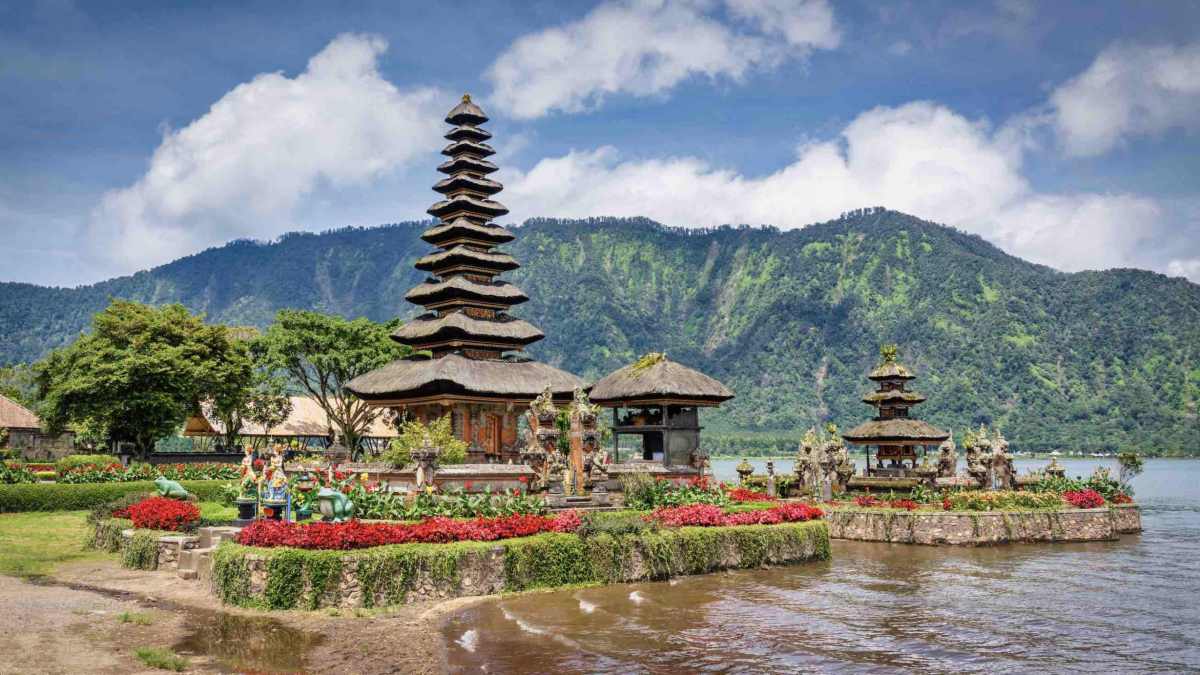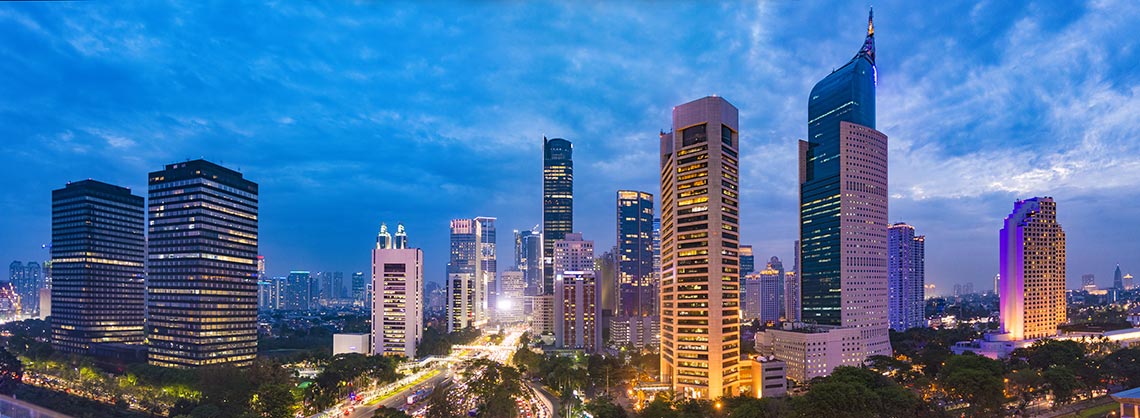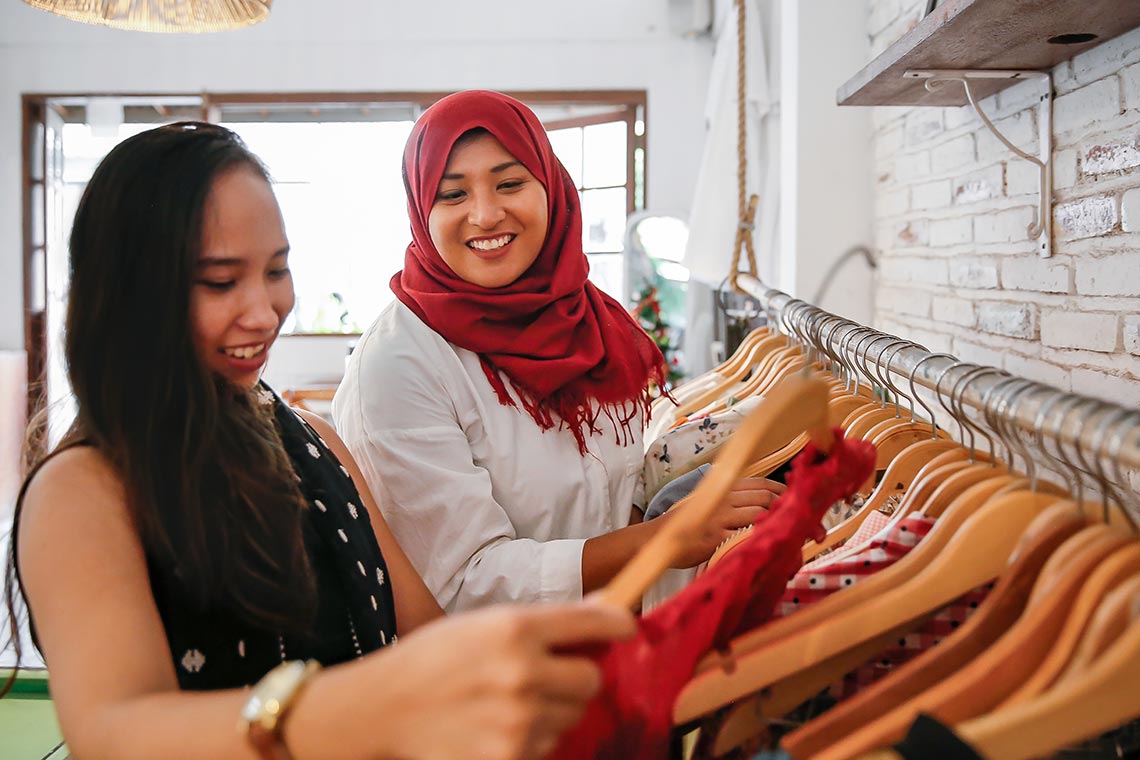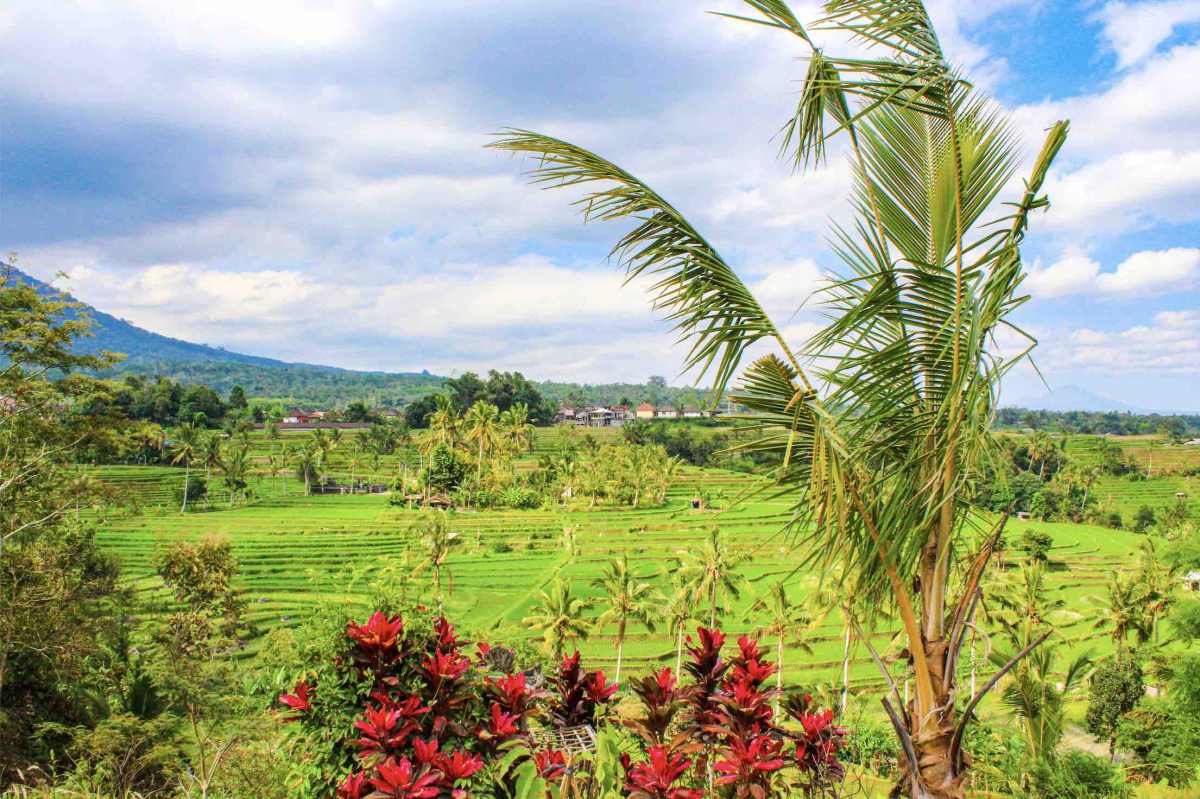Market Research In Indonesia

Indonesia stands as one of Southeast Asia’s largest economies, fueled by its natural resources, and rapidly urbanizing population. Now, as the country undergoes a significant transition, integrating modern technologies with its traditional industries, the significance of market research in Indonesia is more important than ever.
Why Is Market Research in Indonesia So Important?
Indonesia is one of the world’s most populous countries and presents a complex business landscape with multiple consumer behaviors, preferences, and aspirations. Therefore, conducting market research in Indonesia is not just about understanding the numbers; it’s about tapping into the heart of the Indonesian consumer.
Market research facilitates a more in-depth understanding of the local culture. Indonesia’s diverse ethnicities, religions, and traditions influence purchasing decisions and brand perceptions. So, when businesses have deep insights from market research, they can tailor their offerings precisely, ensuring they resonate with the local sentiments.
Moreover, market research in Indonesia is vital for navigating the rapidly changing technological landscape. With a booming digital economy and a rapidly growing middle class, Indonesian consumers are increasingly going online for their purchases. Particularly, it offers benefits such as:
• Enhanced Understanding of Diverse Market Segments: Market research provides deep insights into these varying market segments, enabling businesses to understand and cater to the specific needs and preferences of different consumer groups.
• Identification of Market Trends and Opportunities: Market research helps businesses identify emerging trends, consumer behaviors, and untapped opportunities, facilitating timely and strategic actions.
• Competitive Analysis and Positioning: Market research in Indonesia offers insights into competitors’ strategies, strengths, and weaknesses, allowing businesses to position themselves effectively in the market.
• Risk Mitigation: Market research plays a key role in identifying potential risks and challenges in the Indonesian market such as regulatory changes, economic shifts, or logistic issues. This foresight enables businesses to develop strategies to mitigate these risks.
• Customization of Products and Services: It enables businesses to tailor their products and services to meet the specific demands of the Indonesian market. This customization is key to enhancing customer satisfaction and loyalty.
• Effective Marketing and Communication Strategies: Market research provides valuable information on the most effective channels and messages for reaching the Indonesian audience. This enables businesses to craft marketing and communication strategies that resonate with their target market.
Key Industries in Indonesia
Market research in Indonesia offers a window into its rich and diverse economic landscape – and here’s a snapshot of the dominant industries:
• Agriculture: Indonesia is a top exporter of palm oil, coffee, cocoa, and rubber. Companies such as PT Indofood Sukses Makmur (one of the world’s largest instant noodle producers) and PT Astra Agro Lestari (a significant player in the palm oil industry) dominate the sector.
• Mining and Energy: Indonesia is a leading exporter of coal, tin, gold, and natural gas. PT Freeport Indonesia, known for its copper and gold mining operations, and PT Pertamina, the state-owned oil company, are significant contributors to this industry.
• Tourism and Hospitality: With its numerous islands and diverse culture, tourism is a significant revenue generator for Indonesia. Bali, Jakarta, and Yogyakarta are some of the main attractions. Hotel chains like PT Hotel Mandarine Regency cater to the influx of tourists every year.
• Financial Services: The banking and financial sector has seen substantial growth. Major banks like Bank Central Asia (BCA) and Bank Mandiri significantly contribute to the industry’s growth.
Preferred Research Methods
Conducting market research in Indonesia involves a strategic mix of qualitative and quantitative methods to understand this diverse and complex market thoroughly. Each method brings its unique strengths, and when combined, they provide a comprehensive picture of the Indonesian market.
• Focus Groups: Conducting focus groups in different regions of Indonesia can provide insights into regional variations in consumer attitudes and preferences. These discussions are particularly useful for exploring complex topics like brand perception and customer experience.
• In-Depth Interviews: Personal interviews with consumers, industry experts, and business leaders can offer detailed insights into specific market aspects. In Indonesia, these interviews can be crucial for understanding nuanced cultural factors influencing consumer behavior.
• Ethnographic Studies: Observing consumers in their natural environment can reveal how cultural, social, and economic contexts influence their purchasing decisions and lifestyle choices in Indonesia.
• Case Studies: Analyzing successful or unsuccessful business ventures within the Indonesian market can provide valuable lessons and insights into what strategies work or don’t work in this specific context.
• Surveys: Utilizing online and offline surveys can help gather a large amount of data from various consumer segments across Indonesia. The design of these surveys is crucial to ensure cultural appropriateness and clarity.
• Statistical and Data Analysis: Analyzing existing market data, consumer trends, and economic reports can provide a quantitative overview of the market landscape in Indonesia.
Market Research in Indonesia vs Mature Markets
Comparing market research in Indonesia with more mature markets highlights distinct differences in approaches, challenges, and opportunities. These contrasts are crucial for businesses that operate globally and need to adapt their market research strategies according to specific market characteristics.
• Stage of Market Development: Mature markets typically exhibit stable consumer patterns and saturated market conditions, whereas Indonesia, as a developing market, is characterized by rapid growth, evolving consumer behaviors, and untapped market segments.
• Consumer Preferences and Behaviors: In mature markets, consumer preferences might be more predictable and consistent. In contrast, Indonesian consumers may demonstrate more fluid and diverse preferences influenced by regional, cultural, and economic factors.
• Accessibility of Data: In mature markets, there is often an abundance of accessible, high-quality market data. In Indonesia, while data is becoming more available, especially through digital channels, there may be gaps in rural or less developed regions.
• Reliability of Data: Data in mature markets typically comes from established, standardized sources. In Indonesia, businesses might need to verify the accuracy and reliability of data more rigorously, particularly when dealing with emerging markets or less digitized segments.
• Adaptation of Research Techniques: Research methodologies that are effective in mature markets may need significant adaptation in Indonesia to account for cultural, linguistic, and socioeconomic diversity.
• Regulatory Framework: Mature markets often have well-established and stable regulatory frameworks governing market research. In Indonesia, businesses might encounter a more fluid regulatory environment, with evolving policies on data protection, consumer rights, and digital transactions.
• Nature of Competition: In mature markets, competition is often between established players with clearly defined market segments. In Indonesia, the competitive landscape can include a mix of local startups, regional players, and global corporations, offering diverse and sometimes unexpected competitive dynamics.
Key Industries in Indonesia
• Oil and Gas: The oil and gas sector is a cornerstone of Indonesia’s economy. Pertamina, the state-owned oil and gas company, dominates this sector, playing a crucial role in exploration, production, refining, and distribution across the nation.
• Manufacturing: The manufacturing sector, particularly automotive and electronics, is a growing part of Indonesia’s economy. Astra International is a major player in the automotive industry, while PT Panasonic Manufacturing Indonesia is notable in electronics manufacturing.
• Telecommunications: The telecommunications sector has seen rapid growth, driven by the country’s increasing digitalization. Telkom Indonesia, the largest telecommunications company in Indonesia, leads in providing a range of telecommunication and network services.
• E-Commerce and Digital Economy: The e-commerce and digital economy are rapidly expanding, with companies like Gojek, a multi-service platform, and digital payment technology, and Tokopedia, an online marketplace, leading the digital transformation.
Main Players in Indonesia
In Indonesia’, certain companies stand out as main players. These entities play a crucial role in shaping Indonesia’s overall economic landscape – and they are:
• Pertamina: As Indonesia’s state-owned oil and natural gas corporation, Pertamina is a key player in the energy sector. It has a major influence on the national economy, given its role in energy production and distribution across the archipelago.
• Bank Central Asia (BCA): BCA is one of Indonesia’s largest private banks and a major player in the financial sector. It offers a wide range of banking services and plays a crucial role in the financial inclusion and economic growth of the country.
• Telkom Indonesia: This state-owned enterprise is the country’s largest telecommunications company. Telkom Indonesia is instrumental in driving the digital transformation in Indonesia, providing a range of telecommunication services, including internet and mobile communications.
• Astra International: Astra International is a conglomerate and a major force in Indonesia’s automotive industry. It has diverse interests, including in finance, agribusiness, heavy equipment, and mining, making it a significant player in Indonesia’s economy.
• Gojek: Gojek has evolved into a digital technology company offering a wide array of services, including logistics, digital payments, and food delivery. Gojek is a key player in Indonesia’s burgeoning digital economy.
• Garuda Indonesia: As the national airline of Indonesia, Garuda Indonesia plays a vital role in the country’s tourism and aviation sectors. It is instrumental in connecting the Indonesian archipelago domestically and with the rest of the world.
• Indofood: Indofood is one of the leading food companies in Indonesia, known for its wide range of products, including instant noodles, dairy, snacks, and food seasonings. Its presence in the daily lives of Indonesians makes it a key player in the country’s food industry.
• Tokopedia: This online marketplace is a leading player in Indonesia’s e-commerce sector. Tokopedia has transformed the retail landscape in Indonesia, enabling countless small and medium enterprises to reach a wider market.
Neighborhoods
The capital of Bali is the city of Denpasar, located in the southern part of the island. Many recognize it as one of the most popular tourist sites in Indonesia. It serves as a hub that connects many tourist sites in Bali. Bali is a famous territory receiving millions of tourists each year.
Surabaya is the ninth largest city in Indonesia. It has the highest money and banking rotation in Indonesia but is known as the home of many manufacturing industries. Surabaya is one of the main tourist gates, which means that there is no limit to the number of opportunities this city has for wealth. This city features many shopping centers and properties that encourage various investments.
Yogyakarta is the heart of cultural heritage and tourism in Java Island. Tourism is the most dominant aspect of this city, with many people coming to see its beautiful landscape and refreshing air. The most prosperous industries located here are: furniture, fashion, and retail. The automotive, food and beverage, and jewelry sectors also do well. The soil in Yogyakarta is ideal for the agricultural sectors also.
What Are the Main Tourist Attractions and Cities?
When it comes to market research in Indonesia, it is critical to understand the significance of its tourism sector. The archipelago offers an enticing blend of natural wonders, historical richness, and cultural diversity. Here’s a list of its main attractions:
• Bali: Often referred to as the ‘Island of the Gods’, Bali is the crown jewel of Indonesian tourism. Known for its pristine beaches, lush terraced rice paddies, vibrant arts scene, and mesmerizing temples, Bali attracts millions of visitors annually.
• Borobudur: Located in Central Java, the Borobudur temple is the world’s largest Buddhist temple. This UNESCO World Heritage site is a marvel of ancient architecture and a significant pilgrimage spot.
• Komodo National Park: Home to the world-famous Komodo Dragons, this national park comprises three major islands – Komodo, Rinca, and Padar. Tourists flock here not only for the dragons but also for diving, as the marine life is rich and diverse.
• Jakarta: The capital city, a melting pot of cultures, offers a blend of modern skyscrapers with historical landmarks. Market research in Indonesia often points to Jakarta’s unique position as both a business hub and a place rich in Indonesian heritage.
Trends
Millennials and Gen Z influence the trends of Indonesia. Popular social media apps also impact these trends. The most popular in Indonesia are YouTube, WhatsApp, and Instagram. The aspects most focused upon are health, digital evolution, and fashion. Consumers are now demanding products and services related to health and digital consciousness. These are all factors that incorporate some foreign trade and investment. The trends of Indonesia are always changing because of the population size and how foreign culture influences it.

Consumer Base
The consumer base of Indonesia is dynamic. Indonesians tend to be loyal to products that they already know. Yet, they are globally conscious of the various products that are out there. Because of this, investors, both foreign and national, reap incredible rewards, especially within the retail sector of the Indonesian economy. The retail industry of Indonesia has been growing. Some experts consider Indonesia to be the most promising market among Asian countries. Indonesia has a large population, and its citizens engage in plenty of modern spending. There are but only a few short-term occurrences where economic downturn took the victory.

How Indonesia is a Gateway to Southeast Asia
Indonesia is one of the ten countries considered to be gateways to Southeast Asia. It allows effortless transport of people, goods, and services within the region. This gateway status now brings in more investment and increases the opportunities for Indonesia. The options include expanding in size and wealth. Its standing allows Indonesia to be a more stable country involved in globalized trade.
Rule of Law
Indonesia is a Rule of Law country. The Amendment of the Indonesian Constitution, UUD 1945, affirms that. The three principles that must exist are present in the country:
- The supremacy of law,
- Equality before the law, and
- Due process of law.
Indonesia’s rule of law establishes trust between the government and the investor. The laws are agreeable and negotiable in some cases. They ensure that foreign and even local investors will be most satisfied. This respect for the rule of law gives Indonesia leverage above most countries for foreign trade. Its status ensures that investment will be beneficial to the investor.

Opportunities for Businesses
Indonesia’s diverse market, combined with its strategic position in the Southeast Asian region, presents many opportunities for businesses. Delving deep into market research in Indonesia can be particularly rewarding for various sectors – and here’s how:
• Digital Penetration: With the rapid surge in internet usage and smartphone adoption, there’s a vast untapped potential in the digital market. Indonesia boasts a young, tech-savvy population which is propelling the growth of e-commerce, digital payments, and online services. Market research in Indonesia can help businesses understand user behavior and preferences, tailoring their digital strategies accordingly.
• Halal Market: Indonesia, being the world’s most populous Muslim-majority nation, offers a lucrative market for halal products. This not only pertains to food but also to cosmetics, pharmaceuticals, and lifestyle products. By understanding this segment, businesses can innovate and tailor products to meet the specific needs of this demographic.
• Infrastructure Projects: The Indonesian government has been aggressively pushing for infrastructure development. This opens doors for construction, logistics, and associated industries. Comprehensive market research in Indonesia can help businesses identify potential projects, collaborations, and local partnerships.
• Tourism and Hospitality: As highlighted earlier, tourism is a significant contributor to the Indonesian economy. Proper market research can guide businesses in identifying tourist preferences, potential new attractions, and enhancing the overall travel experience.
• Agriculture and Commodities: Indonesia is a major producer of commodities like palm oil, coffee, and spices. Market research in this sector can lead to sustainable farming practices, value addition, and better global positioning.
Market Research in Indonesia: Challenges for Businesses
Market research in Indonesia offers several opportunities for businesses to thrive and innovate, However, conducting comprehensive and reliable research can sometimes be a daunting task, given the unique characteristics of the Indonesian market. Here are some challenges to consider:
• Diverse Demographics: Indonesia is an archipelago of over 17,000 islands and multiple ethnic groups. This diversity, while rich and fascinating, poses a challenge for businesses trying to create a one-size-fits-all strategy.
• Rural vs. Urban Divide: While urban areas like Jakarta, Surabaya, and Bali have seen rapid modernization and digital adoption, large swathes of rural Indonesia remain less developed. This disparity makes market research in Indonesia a complex task as businesses must understand and cater to both ends of the spectrum.
• Data Reliability: Finding accurate and up-to-date data can sometimes be a challenge. Therefore, businesses need to ensure they are sourcing reliable data and collaborating with trusted partners.
• Regulatory Hurdles: Like many emerging markets, the regulatory landscape in Indonesia is in constant flux. This can pose challenges for businesses wanting to enter or expand in the market. Regular market research in Indonesia can help businesses stay updated on any regulatory changes and adapt accordingly.
• Digital Infrastructure: While the digital revolution is in full swing in major urban centers, there are still challenges related to internet speed, digital payment adoption, and overall digital literacy in some regions.
Future Outlook of Market Research in Indonesia for Businesses
The trajectory of market research in Indonesia is upward, fueled by the country’s economic growth, young demographic, and increasing digitalization. As businesses, both domestic and international, continue to recognize the potential of the Indonesian market, the importance of”market research will only become more pronounced. Here’s what the future might hold:
• Digital Domination: The digital landscape in Indonesia is set to grow exponentially. With increasing smartphone penetration and internet usage, businesses will prioritize market research that focuses on online behavior, e-commerce trends, and digital consumer habits.
• Integration of Advanced Technologies: Tools like Artificial Intelligence, Machine Learning, and Big Data will play a significant role in refining research. These technologies will enable businesses to process vast amounts of data, predict trends, and gain actionable insights more efficiently.
• Increased Investment: Recognizing the vast potential of the Indonesian market, there will be more investments. Businesses will allocate more resources to ensure they have a finger on the pulse of this dynamic and evolving market.
• Greater Focus on Mobile and Online Platforms: With Indonesia’s growing internet penetration and the widespread use of smartphones, market research is likely to increasingly leverage mobile and online platforms. This shift will enable researchers to gather real-time data and tap into the digital behaviors of Indonesian consumers.
• Expansion of E-commerce Research: The burgeoning e-commerce sector in Indonesia offers fertile ground for market research. Future research is likely to delve deeper into online consumer behavior, e-commerce trends, and digital shopping patterns.

